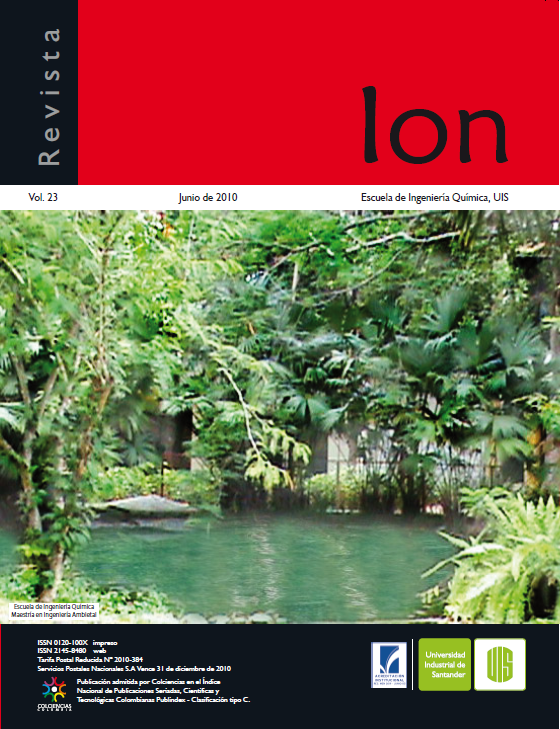ESTUDIO ELECTROQUÍMICO DE LA ADSORCIÓN SUPERFICIAL DE FOSFATOS SOBRE MEZCLAS DE ÁCIDO POLILÁCTICO CON VIDRIO BIOACTIVO Y ÁCIDO POLILÁCTICO CON HIDROXIAPATITA
Published 2010-09-30
How to Cite
Abstract
RESUMEN
Se evaluó la interacción entre hidroxiapatita, vidrio bioactivo y ácido poliláctico, los cuales fueron sintetizados por métodos de precipitación acuosa, sol – gel y policondensación, respectivamente; y caracterizados mediante FTIR, DRX, DSC. Se obtuvieron probetas con diferentes porcentajes de polímero - cerámico para estudiar su capacidad de adsorber fosfatos, y de esta manera reconocer cuál de estas mezclas presenta una mejor respuesta a la oseointegración en presencia de fluido corporal simulado. Las probetas fueron sumergidas en el medio con diferentes relaciones de Ca/P y su capacidad de adsorción fue evaluada mediante EIS. Los parámetros electroquímicos obtenidos permitieron estimar los elementos resistivos y capacitivos de un circuito equivalente que relacionan los parámetros termodinámicos asociados al fenómeno de adsorción experimentado. Finalmente se determinó la cantidad de iones adsorbidos mediante AAS.
Palabras clave: Biomateriales, recubrimientos, oseointegración
ABSTRACT
The interaction between hydroxyapatite, bioactive glass and polylactic acid was evaluated, which were synthesized by aqueous precipitation methods, sol - gel and polycondensation respectively, and they were characterized by FTIR, XRD, DSC. Samples with different percentages of polymer and ceramic were obtained to study their ability to absorb phosphate, and later to identify which of these samples of materials present a better response to osseointegration in the presence of simulated body fluid. Samples were immersed in that fluid with different relations of Ca/P and their adsorption capacity was evaluated by EIS. The electrochemical parameters obtained allowed to estimate the resistive and capacitive elements of an equivalent circuit linking the thermodynamic parameters associated with adsorption phenomena experienced. Finally, the amount of adsorbed ions was determined by AAS.
Keywords: Biomaterials, coatings, osseointegration.

